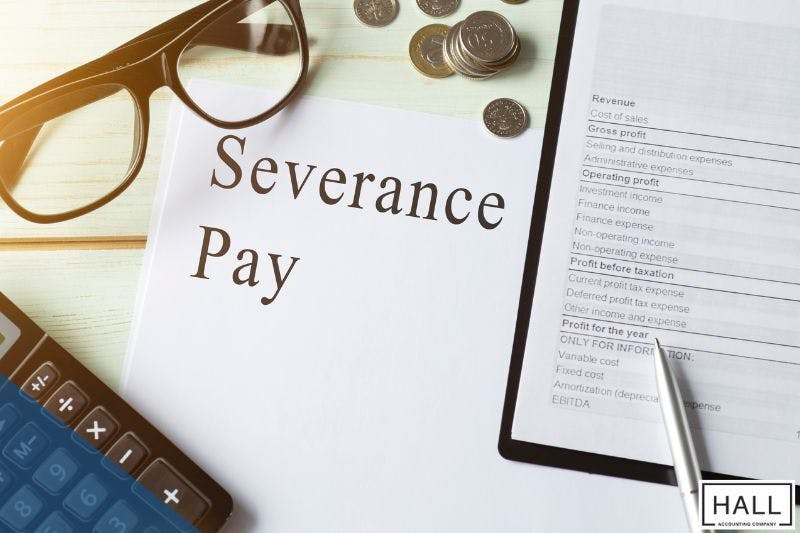
Here in the U.S. all bonuses are considered taxable income and must be declared on your tax return. We break down different types of bonuses and how you should file them on your tax return.
7 Types of bonuses and how they affect your tax liability
1. Cash bonuses
A cash bonus is a monetary reward given to employees based on performance, company profits, or as an incentive. It is taxed as supplemental wages, at a bonus tax rate, and is subject to withholding, reported on form W-2. Examples of cash bonuses are:
Year-end bonus
Performance-based bonus
Holiday bonus
Retention bonus
Signing bonus
Cash bonuses which are seen as supplemental income directly impact your taxable income, and can push you into a higher tax bracket which will increase what you owe in the tax year you received it.
Your employer will withhold 22% federal tax, according to the percentage method, but you may end up paying in if the bonus was sizable. For example, if your employer withholds 22% and your taxable income calls for it to be 24%, you will pay the extra 2% at filing time.
Step-by-step filing of cash bonuses
Receive your W-2 form from your employer.
Locate Box 1 (wages, tips, other compensation) - your bonus is included here.
On form-1040, enter the total amount from Box 1 on Line 1a (total income).
Review your tax withholding (Box 2 for federal taxes, Boxes 4&6 for social security and Medicare)
Complete your tax return (deductions and credits etc.)
File your return by April 15 (or file an extension).
_________________________________________________________________
Want to get rid of the stress of the filing season? Work with our senior tax associates at Hall Accounting Company for a smooth tax season and get your tax planning strategies for next year at the same time. Schedule a call.
_________________________________________________________________
2. Non-cash bonuses (fringe benefits)

A non-cash bonus is a non-monetary reward given instead of or in addition to cash. The fair market value of the item is taxable if it exceeds the IRS de minimis limits. Examples of non-cash bonuses are:
Gift cards (always taxable, regardless of amount)
Company-paid vacations or trips
Free memberships to organizations (gym, golf club)
Merchandise (electronics, company car for personal use)
The value of the gift is considered taxable income by the Internal Revenue Service, and your employer will withhold taxes and report the fair market value on W-2.
Example:
You earn $60,000 as a salary and receive a $5,000 vacation trip as a year-end bonus. Your W-2 will show $65,000 as taxable income. If your employer did not withhold tax, you will be liable for it when tax season arrives.
Step-by-step filing of non-cash bonuses
Check your W-2. Non-cash bonuses are included in Box 1 (wages, tips, other compensation) if taxable.
Report on form-1040, entering the amount on Line 1a.
Verify state/local tax withholding (if applicable).
If not included on the W-2, report the bonus separately as other income on Schedule 1, Line 8z, and describe the nature of the bonus.
Do not report small non-cash gifts under de minimis limits.
3. Stock and Equity-based bonuses

Stock and equity-based bonuses are compensation given in the form of company stock or stock options instead of cash. Tax treatment depends on the type of compensation. This includes:
Restricted stock units (RSUs): Taxed as income when they vest.
Non-qualified stock options (NSOs): Taxed when exercised.
Incentive stock options (ISOs): May be subject to Alternative Minimum Tax (AMT)
These bonuses increase taxable income when vested (RSUs) or exercised (NSOs), which may cause capital gains tax at a later time.
Step-by-step filing of stock and equity-based bonuses
Check your W-2 - RSUs are included in Box 1 as taxable income when vested.
Report total W-2 income on Form-1040, Line 1a.
If you sell stock, report the sale on Schedule D using Form-8949.
Pay capital gains tax if the stock increases in value after vesting.
For NSOs or ISOs, you need to check your W-2 when exercised and report bonuses accordingly.
4. Referral bonuses

A referral bonus is a reward for referring a new employee or customer to a business. Tax treatment depends on how you receive the bonus. For example:
Employee referral bonus: Reported on W-2 as supplemental wages (taxed like a cash bonus)
Independent contractor referral bonus: Reported on form-1099-NEC (subject to self-employment tax)
Referral bonuses are withheld by your employer at the withholding rate of 22% if you are an employee, but if you’re an independent contractor you must report the total amount and work out how much tax you owe.
Step-by-step filing of referral bonuses
If paid as an employee, it’s included in Box 1 of your W-2, follow the steps for cash bonuses.
If paid as an independent contractor, enter the amount on Schedule C under Gross Receipts.
Deduct business expenses.
Pay self-employment tax using Schedule SE.
5. Sales commission and incentives
A performance-based reward is given for closing a sale or reaching a target. Can be paid as a lump sum, percentage of revenue, or incentive prizes.
Employee sales commissions: Reported on W-2 as wages.
Independent contractor commissions: Reported on form-1099-NEC.
Sales commission and incentives are treated as regular wages if you’re an employee, however if you’re an independent contractor you report it with your income, and you can deduct business expenses to lower taxable income.
Step-by-step filing of sales commission and incentive bonuses
If you’re an employee, report as per cash bonuses
If you’re a contractor, report on form-1099-NEC, and deal with the bonus as per referral bonuses.
_______________________________________________________________
Independent contractors need special attention when it comes to taxes. We’re ready to help you sort through the maze of tax rules and regulations. Call Hall Accounting Company today, and let’s see how we can help you make life easier at tax time.
_______________________________________________________________
Note: As an independent contractor, you may be required to make quarterly estimated payments and include this amount as income.
6. Employer-paid prizes and awards

These are gifts given by an employer as a reward for achievements, milestones, or incentives, and are taxable unless it meets the IRS exceptions for employee achievement rewards. These are:
Cash prizes.
Items of value such as a phone, laptop, vehicle, and free vacation.
Employer-paid prizes and awards are withheld at 22% if they’re cash awards, and if non-cash the value is reported on a W-2.
Step-by-step filing of non-cash bonuses
Check your W-2, the prize’s fair market value is included in Box 1, report as per cash bonuses.
If it’s not on the W-2, report it on Form-1040 under other income (Schedule 1, Line 8z).
7. Independent contractor bonuses (1099 bonuses)
An independent contractor bonus is paid to freelancers, gig workers, or self-employed individuals for completing work - most commonly performance goals. These do not have tax withholding, so recipients are responsible for ensuring they include these bonuses for income tax purposes. Examples of these bonuses are:
A consultant receives a $5,000 performance bonus from a client.
A freelance writer gets a $1,000 bonus for exceeding expectations.
A rideshare driver earns a $500 sign-up incentive.
As an independent contractor, you owe self-employment tax because you do not work for an employer. You can get a tax break by claiming all possible tax deductions and tax credits available to you at tax time.
File your taxes as per sales and commissions bonuses, and referral bonuses explained above.
Items not classified as bonuses

At times, confusion can be created by not understanding what qualifies as a bonus. For this reason, taxpayers should know that the following items are not considered bonuses:
Payment of medical expenses (health savings account).
Severance pay (compensation for job termination, not a performance reward).
Accumulated sick leave (not a performance-based incentive).
Overtime pay (normal wages paid for overtime hours).
File your bonus successfully
As we conclude, our guide on filing bonuses on your tax return. We acknowledge that it can be a confusing exercise, especially if your employer has not withheld taxes, or you have forgotten to submit certain income as an independent contractor. It can remove the joy of receiving a performance reward and leave you with nothing but stress.
But help is available. Your local tax professional will help you to file your taxes correctly, and take a lot of the stress out of the process. Hall Accounting Company has been successfully helping clients file their taxes and is ready to do the same for you. Call us today for your free initial consultation.
Helping you make this tax season the best one yet!